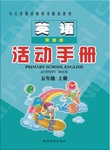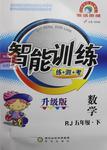题目内容
NASA is moving ahead with plans to put a long-armed lander on Mars’ icy north pole to search for clues①for water and possible signs of life.
The $386 million Phoenix Mars is planned to touch down in the Martian arctic in 2008. The stationary probe will use its robotic arm to dig into the icy land and pick up soil samples②to analyze. In 2002, the Mars Odyssey orbiter spotted evidence of ice-rich soil near the arctic surface.
Scientists hope the Phoenix mission will find clues to the geologic history of water on the Red Planet and determine whether microbes③existed in the ice.
Phoenix will be the first mission of the Mars Scout program, a renewed, low-cost effort to study the Red Planet. “The Phoenix mission explores new territory in the northern plains of Mars analogous to the permafrost regions on Earth,” Peter Smith said.
True to its name, Phoenix rose from the ashes of previous④missions. The lander for Phoenix was built to fly as part of the 2001 Mars Surveyor program. But the program broke down after the well-known disappearance of the Mars Polar Lander in 1999. The Polar Lander lost contact during a landing attempt near the planet’s south pole after its rocket engine shut off prematurely, causing the spacecraft to fall about 130 feet to almost certain destruction.
The Phoenix probe had been in storage at a Lockheed Martin clean room in Denver before it was reused for its present mission. It will carry science instruments that were designed for the Mars Surveyor program including an improved panoramic camera and a trench-digging robotic arm. Phoenix will lift off from the Kennedy Space Center in August 2007 and land on the planet nine months later.
Notes:
① clue n. 线索
② sample n. 标本,样品
③ microbe n. 微生物
④ previous adj. 先前的
- 1.
The passage mainly tells readers that _________.
- A.clues of water will be found in Phoenix
- B.Phoenix will be sent to find clues of water on Mars
- C.August 2007 will see Phoenix lift off
- D.the Mars Scout program will be carried out
- A.
- 2.
The underlined word “prematurely” (paragraph 5) means _________.
- A.on time
- B.behind the time
- C.out of work
- D.ahead of time
- A.
- 3.
According to the passage, we know Phoenix will land on Mars _________.
- A.in May 2008
- B.in August 2007
- C.in August 2008
- D.in September 2008
- A.
- 4.
According to the passage, the name “Phoenix” is after the meaning of _________.
- A.rebirth
- B.death
- C.energy
- D.hope
- A.
- 5.
After Phoenix lands on Mars, we can infer it will firstly _________.
- A.find soil samples and send them to the earth
- B.look for the icy land to dig for the soil samples
- C.take photos and send them to the earth
- D.find the remains of the Mars Polar Lander
- A.
BDAAB
1.主旨大意题。文章的第一段就是该文章的主题句,由此可知文章要讲述的主要内容。
2.词义猜测题。由后面的句子可知Phoenix是在空中离地面120英尺处坠向地面,因此可以推测rocket engine提前结束工作。
3.细节计算题。由文章最后一段最后一句可以计算出。
4.推理判断题。由第五段的第一句可知。
5.推理判断题。由文章的第二段可知,Phoenix的目的就是要通过挖掘冰地,取出样本进行研究。因此,它首先要寻找冰地。
1.主旨大意题。文章的第一段就是该文章的主题句,由此可知文章要讲述的主要内容。
2.词义猜测题。由后面的句子可知Phoenix是在空中离地面120英尺处坠向地面,因此可以推测rocket engine提前结束工作。
3.细节计算题。由文章最后一段最后一句可以计算出。
4.推理判断题。由第五段的第一句可知。
5.推理判断题。由文章的第二段可知,Phoenix的目的就是要通过挖掘冰地,取出样本进行研究。因此,它首先要寻找冰地。

练习册系列答案
 互动课堂系列答案
互动课堂系列答案 激活思维智能训练课时导学练系列答案
激活思维智能训练课时导学练系列答案
相关题目